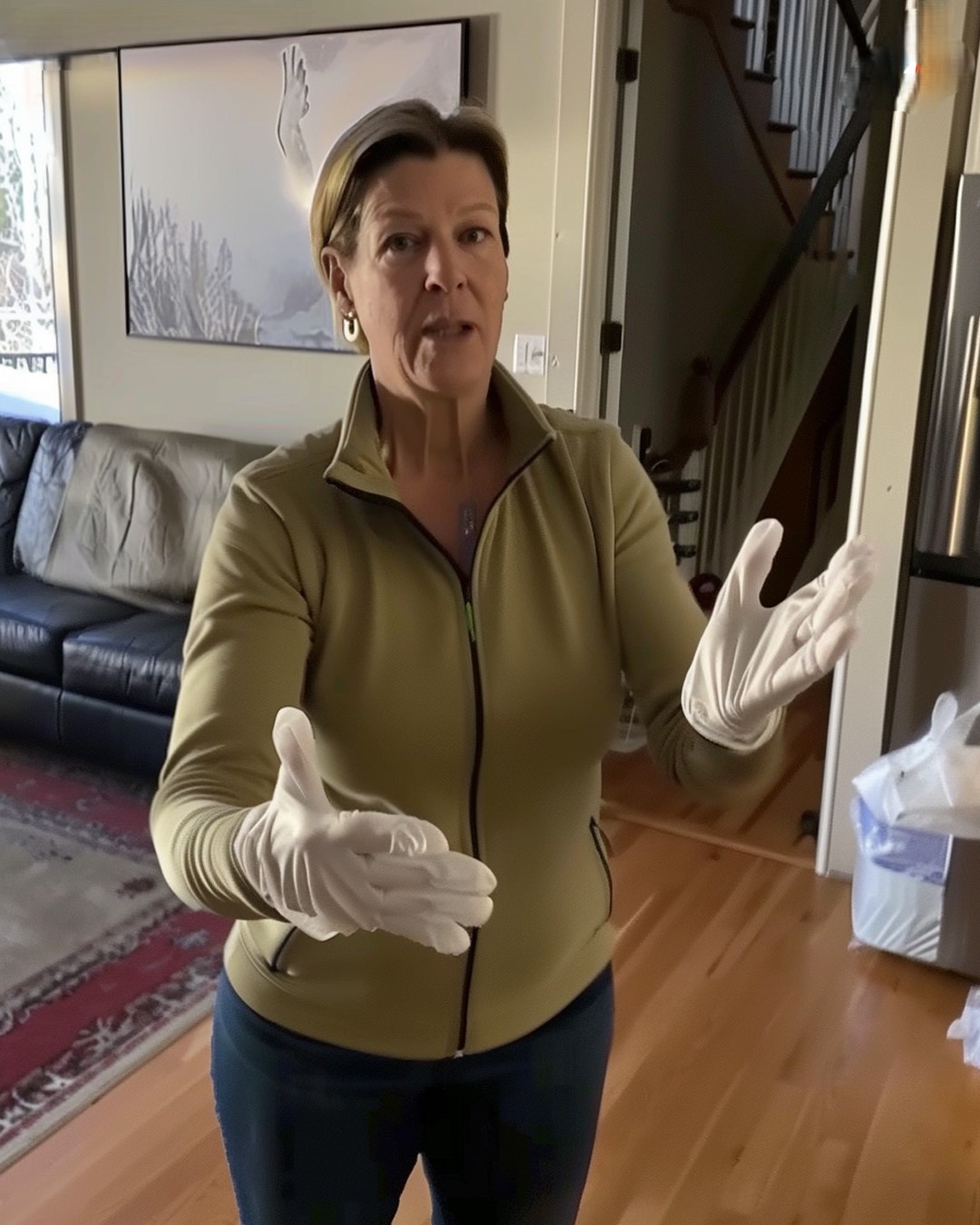My MIL Started Coming to Our House in Latex Gloves, Saying She Was Disgusted to Touch Anything, The Truth Was Much Worse

When my mother-in-law Marilyn started visiting our home wearing latex gloves, claiming she was “disgusted to touch anything,” it felt like a direct insult. With newborn twins to care for and sleepless nights piling up, her judgment only added to my stress. However, one day, a ripped glove revealed a deeply hidden secret of hers.
As a meticulous person, Marilyn’s house was always spotless, a standard I never strived for, especially with young Emma and Lily demanding my attention. Initially, I overlooked her odd behavior, attributing it to her high standards. But her constant criticisms, veiled under the guise of help, began to wear me down.
One day, unable to bear the tension, I confronted her about the gloves. Her response stunned me. She coldly remarked on the state of my home, labeling it dirty and messy. The words stung, and I was too taken aback to respond.
That evening, as I discussed it with my husband Danny, he tried to downplay her behavior, attributing it to her being “particular” about cleanliness. However, the situation escalated beyond mere cleanliness when she hinted that I should hire a cleaning service to manage the disarray she perceived.
Determined to prove her wrong, I threw myself into maintaining an immaculate home, scrubbing and organizing tirelessly. Yet, Marilyn’s glove-wearing visits continued, each one a silent rebuke.
The breakthrough came unexpectedly during one of her routine critiques. As she adjusted a vase of roses I had received from Danny, her glove tore, revealing a tattoo on her hand—a heart with the name “Mason” inscribed within it. The sight was so at odds with the pristine image she projected that both Danny and I were shocked.
Pressed for an explanation, Marilyn’s composure crumbled. She confessed that Mason was someone she met months ago, who made her feel loved and appreciated after years of loneliness following my father-in-law’s death. However, the relationship ended disastrously when she discovered his affection was a cruel joke, leaving her humiliated and heartbroken.
Her admission shed light on her behavior; the gloves were less about her disdain for our home and more about hiding her perceived shame. Seeing her so vulnerable changed my perception of her. I realized that beneath her critical exterior was a woman grappling with her own insecurities and mistakes.
That day marked a turning point. Instead of allowing her harsh judgments to divide us, we began to find common ground. Marilyn started engaging more genuinely with us and the twins, even removing her gloves to embrace her granddaughters.
As we navigated our new family dynamics, it became clear that compassion and understanding could heal and connect us in ways that perfection never could. Marilyn’s tattoo, once a symbol of her pain, became a reminder of our collective resilience and the unexpected paths to forgiveness within a family.